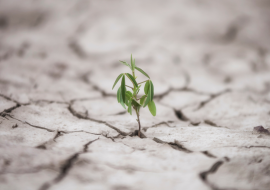
Our Child Brides Who Have Their Lives Taken From Their Hands
I have been dealing with issues involving child abuse, neglect and abuse since 1986. I think that marrying a child at the age of 13-14 to a person who is much older than him, who is the age of his father, uncle or even his grandfather, would constitute both neglect and abuse of the child, even with the permission of these families.
Of course, this is not just my opinion. While reviewing the newspapers the other day, I came across an article in which Attorney Türkay Asma (Term President of Child Neglect and Abuse Prevention and Research Association) was involved. We have worked with him for many years and I value his opinions very much.
The article begins as follows: “For the first time, a child bride has been mentioned with the accusation of attempted sexual abuse in a court case… Asma emphasized that this development was very important in terms of children’s rights, although it was still a ‘possibility’. According to this news published in Habertürk, when a 15-year-old girl in Southeastern Anatolia filed a complaint against her family’s request for forced marriage, the prosecutor filed a lawsuit against the parents for “attempted sexual abuse and forced deprivation of liberty”.
According to Asma, this is considered a full attempt at sexual abuse, which I agree with.
Fatma Şahin, Minister of Family and Social Policies, in her speech on the marriage and giving birth of young children, which had a great impact on the public in recent days; “We never approve of having a child when they are still children. “We will fight to prevent family tragedies,” he said.
In the sub-paragraphs of this article, there were words of the Minister that I really cared about. “Mothers must ensure the education of their daughters… Marriage is an important event. We care about the family… But it has to be in the right place and with the right person on time…”
I would like to touch on the neglect and abuse dimension of the issue a little more. I want to touch because I want to touch abuse, especially to see how a child who has been sexually abused at a young age feels, how his life is taken away from them.
Have you ever looked into the eyes of an abused little child?
If you look at it one day (I hope you will never encounter such a situation), you will not see only timidity, fear, anxiety, anger, helplessness, hopelessness in those eyes. You see it in a lost youth and adulthood. You see a wasted, destroyed life, an unsuspected individual.
“CHILD BRIDES ARE LITTLE CHILDREN WITH SEXUAL ABUSE, YOU READ THESE FEELINGS IN THEIR EYES…”
The issue of child brides is one of the most important social problems and is now on the agenda of the country more than before. However, this is not just a problem specific to our country. It is possible to meet child brides all over the world…
‘Flying Broom’ has been dealing with different projects on this subject for years. He tries to bring sensitivity to the subject… He is very successful…
There are also some individual movements in this regard… For example, Emine Brother, who is a child bride, says, “Don’t let other girls experience what I went through” with the association she founded, and she mobilizes all her material and moral assets to this issue.
Why do early marriages last for generations?
Economic difficulties… On the one hand, the mentality that sees girls as an economic burden, on the other hand, bride price as a solution door…
The sale of a 12-year-old child, who has been on the agenda recently, for 5 thousand liras is a very good example of this issue.
In addition to these, role models, neighborhood pressure, cradle bumps, berdel, domestic sexual abuses, early pregnancy, fear of honor, seeing early marriages as a traditional value, and social pressure on girls can be considered among the reasons for early marriages.
Early marriages take away many of the vital rights of girls… Their education remains unfinished… Their biological, spiritual and social development cannot be completed in their normal course… Having many children at an early age reduces both the physical and spiritual quality of their lives.
These problems are not only theirs but also the society’s, and the cost is very heavy.
Can you imagine that mothers of children who have not grown up, whose education has been left unfinished, and who are dealing with their own half-heartedness in a corner, can raise new generations who look to the future with confidence and hope?
Somewhere, we have many children whose lives have been taken away, living in their own dark worlds that we have not heard of…
This painful scene that has continued for generations… Let us find solutions in our own little worlds and act on behalf of our children whose lives will be lost without wasting time…














